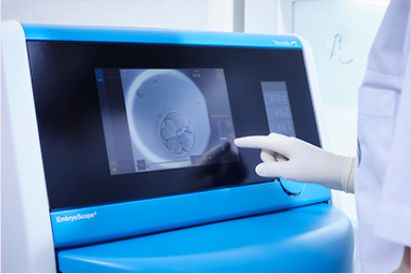About Us
Ashoka Test Tube Baby Centre Clinic: Premier IVF treatment in Chhattisgarh, offering comprehensive infertility services with innovation, integrity, and personalized care
About Us-

Helpline
+91 94255-03700
-

email :
corporate.ashoka@gmail.com
-

Treatment Techniques
- Home
- TLS
Categories


TLS
Time LapseSystem (TLS) have been developed to take digital images of embryosatfrequent time intervals.

The Time-Lapse System (TLS) is an advanced technology used in the field of assisted reproductive technology (ART) for the incubation and assessment of embryos during in vitro fertilization (IVF) procedures. It replaces the traditional method of manually removing embryos from the incubator for assessment by an embryologist under a light microscope.
The TLS consists of a specially designed incubator equipped with a built-in camera system that captures digital images of embryos at frequent time intervals. These images are then compiled to create a time-lapse video, allowing embryologists to observe the development of embryos in real-time without the need for physical handling.
The advantages of using the Time-Lapse System include:
Enhanced Embryo Assessment: The continuous monitoring and recording of embryo development provide detailed and comprehensive information about various parameters, including cell division, growth rates, and morphology. This allows embryologists to assess embryo quality more accurately and make informed decisions regarding embryo selection for transfer or cryopreservation.
Non-Invasive Monitoring: With TLS, there is no need to remove embryos from the stable and controlled incubator environment for manual assessment. This minimizes potential disturbances or fluctuations in temperature, pH levels, or other environmental factors that could affect embryo development. It also reduces the risk of contamination and handling-related damage to the embryos.
Objective Selection Criteria: By having a visual record of the entire developmental process, embryologists can evaluate the embryos based on specific morphokinetic parameters. These parameters include the timing and duration of cell divisions, synchrony of development, and the appearance of key developmental milestones. This objective assessment can help improve the accuracy and consistency of embryo selection.
